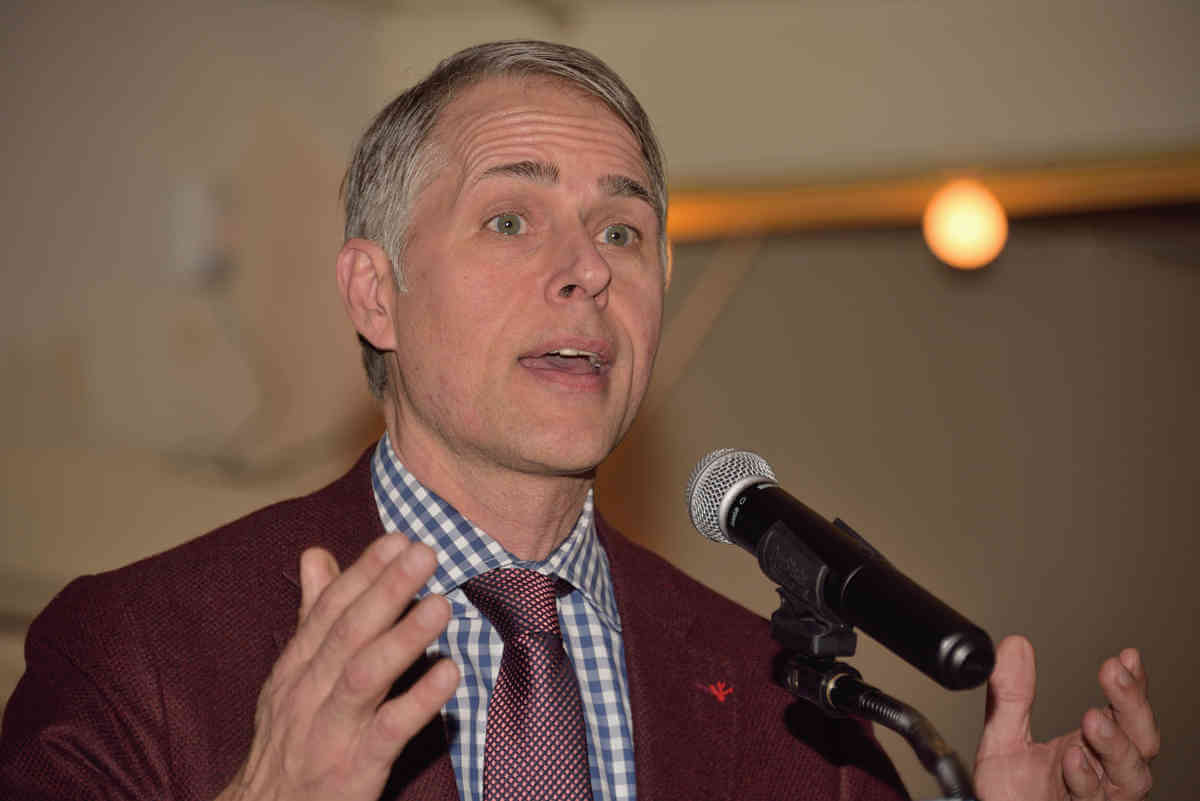The Affordable Care Act’s (ACA) protections for LGBTQ people and their health are hanging in the balance after a federal judge in Texas struck down the entire law on Friday in a move that will almost certainly take the issue back to the Supreme Court.
Former President Barack Obama’s signature healthcare law, which has been a top target of President Donald Trump dating back to his 2016 presidential campaign, contains specific guidelines in Section 1557 preventing discrimination against people on the basis of gender identity and provides crucial coverage — partly thanks to the Medicaid expansion under the measure — to those with pre-existing conditions and chronic conditions such as HIV. The law also requires coverage of important women’s health benefits such as birth control and preventative services like mammograms.
Judge Reed O’Connor of the US District Court for the Northern District of Texas, appointed to the bench by George W. Bush, ruled that the law’s individual mandate (the penalty for not complying having already been wiped out by Trump’s tax bill) is unconstitutional and, as a result, deemed the rest of the law invalid. The ACA remains in place for the time being, but the timing of the ruling — hours before the deadline for enrollees to sign up for healthcare in the new year — and the uncertainty surrounding its future have instilled fear among advocacy groups, experts, and LGBTQ folks alike who worry that the law’s demise could devastate protections and coverage for marginalized groups, especially with no alternative in sight.
Doug Wirth, president and CEO of Amida Care, a nonprofit that offers wide-ranging coverage and care to Medicaid recipients in New York, said in a written statement that the court decision marks “a step in the wrong direction.”
“For those individuals who live with chronic conditions, such as HIV and hepatitis C, playing politics with health care is a life or death situation,” said Wirth, who also noted that those living with pre-existing conditions would be forced into poverty if they lose health care coverage.
While Friday’s ruling is the most visible threat to LGBTQ protections across the board, advocates are fighting simultaneously on multiple legal fronts. In the ongoing case of Franciscan Alliance v. Azar (formerly Franciscan Alliance v. Burwell), which is overseen by the same judge who struck down the ACA in its entirety, the Trump administration is seeking to overturn the nondiscrimination protections laid out in Section 1557.
According to IntoMore, the administration on Monday urged O’Connor to lift the stay he put on his late 2016 injunction against the transgender protections — a stay that stalled the case for 17 months. Trump hopes to have a final decision from O’Connor about whether the protections should remain by May of next year.
The ACA most recently survived a scare in the summer of 2017 when the late Republican Senator John McCain cast the decisive vote in the wee hours of the morning to save the legislation from repeal. In 2012, the Supreme Court narrowly ruled — by a vote of 5-4 — to uphold the individual mandate, which is especially noteworthy in light of of the mandate’s role in O’Connor’s ruling last week.
Officials at the Callen-Lorde Community Health Center, which provides comprehensive healthcare and related services to LGBTQ people in New York, say that the consequences of the court ruling could be severe — and that even now they are seeing the impact of the Trump administration’s elimination of the penalty originally imposed under the individual mandate.
“We are already noticing community members are opting out of getting insurance,” said Kimberleigh Joy Smith, Callen-Lorde’s senior director for community health planning and policy. “This is frustrating because we know that our LGBTQ communities are more likely to be poor and uninsured or underinsured.”
Others have cast doubt on the strength of Friday’s ruling.
Mara Keisling, the executive director of the National Center for Transgender Equality, stressed in a written statement that the judge holds a “bizarre view of the law” that strays from the mainstream interpretation expressed by other legal experts.
“The entire case is part of an administration desperate to undermine the ability of millions of Americans to access life-saving health care, but it is far from the death blow the president and his administration hoped it would be,” she said.
As the Trump administration has taken every opportunity to undermine the ACA, a surprisingly large groundswell of Americans have turned out to defend it since January 2017. Still, there is ongoing dissatisfaction with expensive premiums, high deductibles, and the number of Americans who remain unsinsured. Even as Republicans continue their attacks, a growing number of Democrats are looking to move in the other direction — beyond the intermediate step of Obamacare to a truly universal approach voiced most compellingly by Vermont Senator Bernie Sanders in his 2016 presidential campaign.
With Democrats taking power in the House of Representatives, new progressive voices like New York’s Alexandria Ocasio-Cortez could reignite the push for universal coverage — with many voters warming up to that. Here in New York, with Democrats also newly ascendant in the State Senate, the New York Health Act, which would guarantee universal coverage for the state’s residents, could become a viable option in Albany.
“Ultimately we want to see universal, comprehensive health care for all,” Smith said of Callen-Lorde’s vision for the future of health care.
The likelihood of a universal system is unknown at this moment, but in the meantime, the ACA remains the law of the land — and as everyone waits to see how higher courts react to O’Connor’s shocking ruling from last week, health care professionals are moving full-steam ahead with enrollment efforts. Even healt
In New York, the enrollment deadline for coverage on January 1 has already passed, but the deadline to gain coverage for the remainder of the year is not until January 31.



































